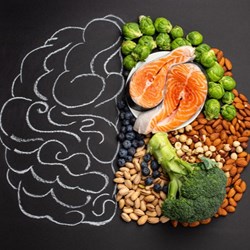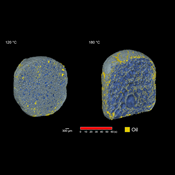


How Nutrients Affect Human Health and Metabolism
Wageningen University & Research (WUR) has appointed Lydia Afman as professor and chair of the Nutrition, Metabolism and Genomics chair group for the Division of Human Nutrition and Health, with effect from April. Prof. Dr. Ir. Lydia Afman aims to understand how food and nutrients work on the molecular, cellular and organic level and how they influence human health and metabolism. “My ambition for the group is to place greater emphasis on our translational approach, which should be taken even further. This means translating findings from animal and cell models to humans, and vice versa. In the latter case, we take insights gained from human studies and explore them in more detail in animal and cell models”

Multidisciplinary Approach
Recognising that a multidisciplinary approach is needed to tackle future research challenges, Afman stresses the importance of effective collaboration. “I strive to create a positive environment that encourages teamwork, openness, inclusivity and creativity." With her broad perspective on nutrition, she aims to link various disciplines and identify new collaborative opportunities. Prior to her new role, she served as an associate professor in the Human Nutrition and Health Department at Wageningen University & Research.

Pioneer in Nutrigenomics
Since starting her postdoctoral work at Wageningen University & Research, Afman has become a pioneer in the burgeoning field of nutrigenomics, particularly in its application to human nutritional intervention studies. Her large-scale and intricate nutritional intervention studies, which involve a comprehensive characterisation of the participants and detailed molecular analysis of metabolic and inflammatory processes, have yielded significant new insights.

Personalised Diet
She has combined this study with 'omics' techniques and sensor data to investigate how nutrition affects metabolic health. In recent years her research has centred on precision nutrition, aiming to uncover the mechanisms behind individual variations in response to food and develop an optimal personalised diet for improved health and disease prevention.

“It is always advisable to maintain a critical perspective on your own products and adjust them to contemporary needs where necessary”, emphasises Marijke Adriaens, CEO of frozen food company Fribona. “For consumers, taste is still the main consideration. It is essential to work towards a product that is, above all, tasty and visually appealing.”...

Scientists from KU Leuven have discovered how oil penetrates snacks during and after the frying process. Recent research findings point to advanced frying techniques that reduce oil absorption, as well as innovative methods to limit oil uptake during the cooling phase. This paves the way for the development of healthier snacks without compromising...

Food companies are increasingly targeting a wider range of consumer groups. Speaking at an event organised by Fenavian, Julian Mellentin of New Nutrition Business said this strategy offers significant opportunities to respond to the diverse health needs and interests of today’s consumers. “Consumers enjoy both animal and plant-based proteins”, he...

Backed by financial partners, Start it @KBC is launching the accelerator programme Scale it Agro, aimed at scale-ups offering sustainable and innovative agricultural solutions for agriculture and horticulture businesses. Kjell Clarysse, programme director at Scale it Agro, goes into more detail.